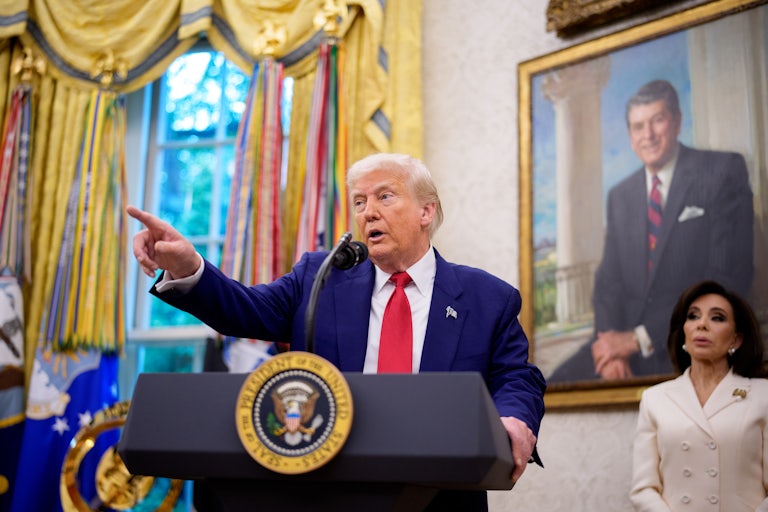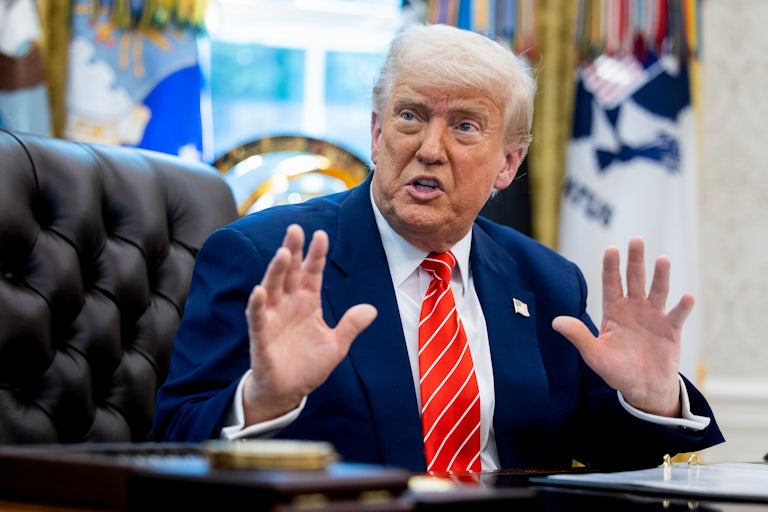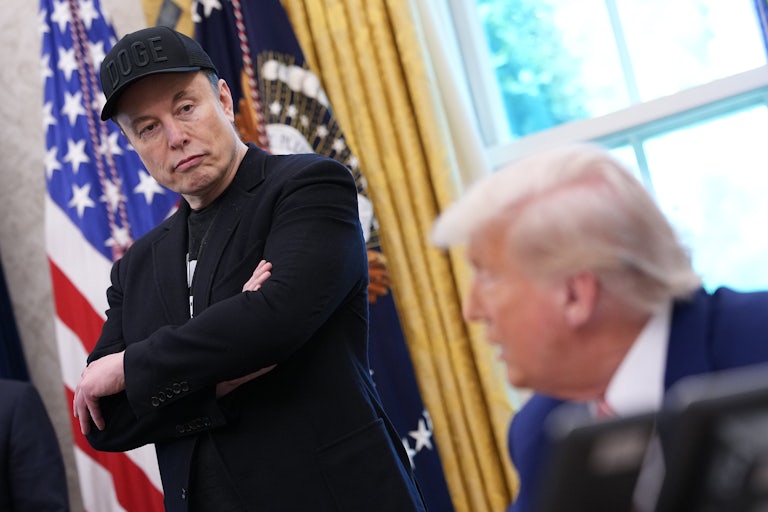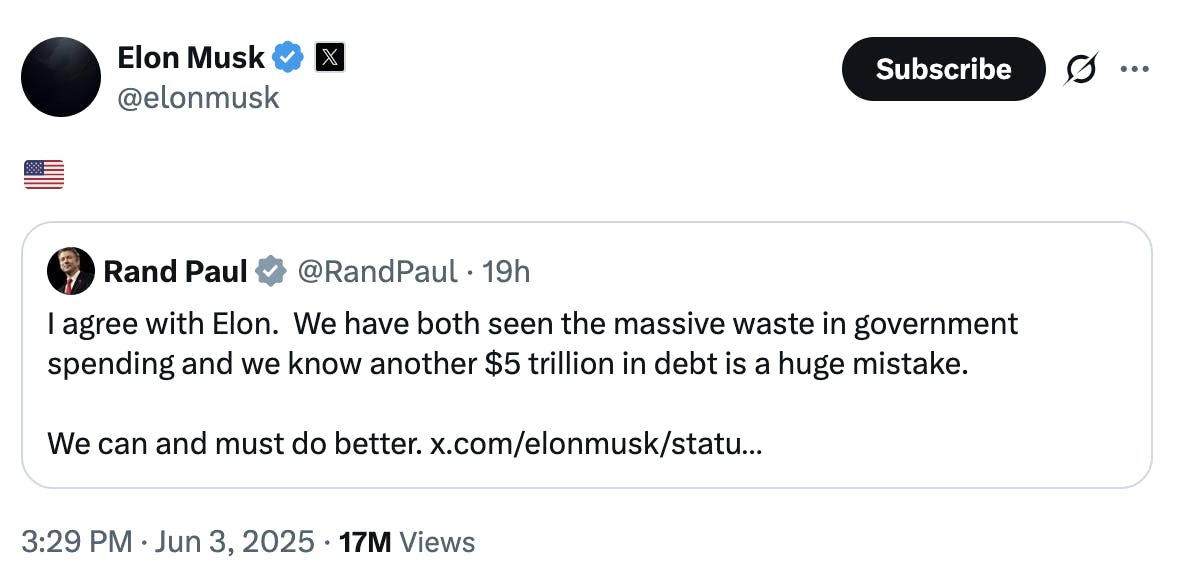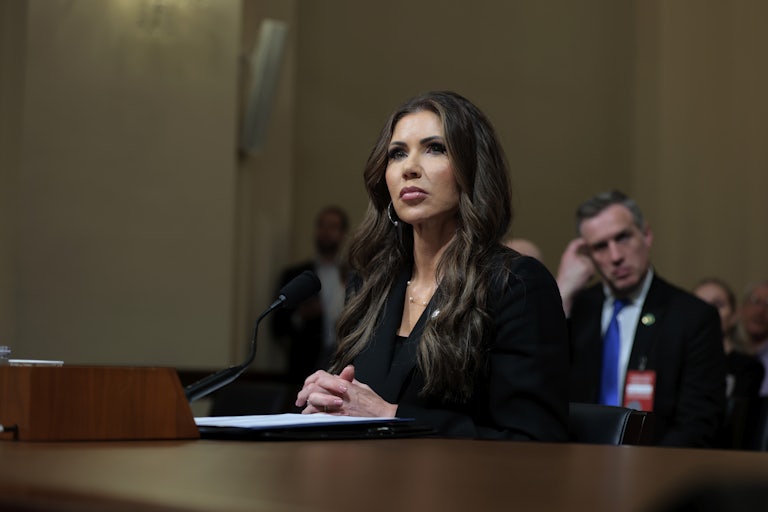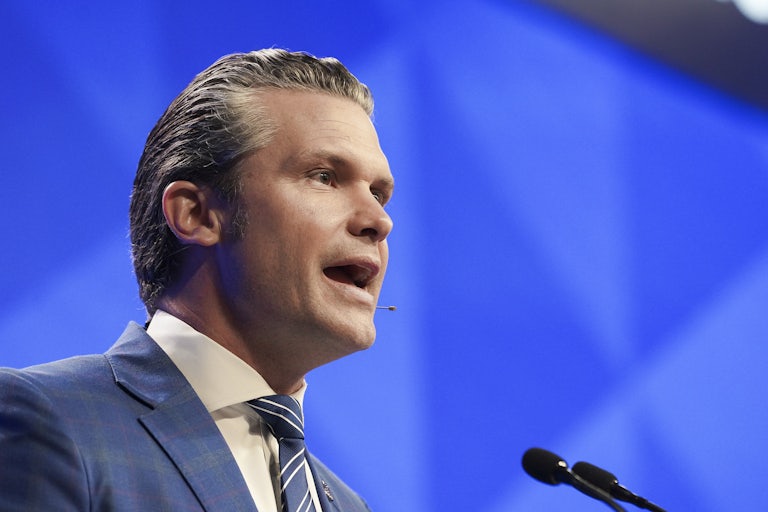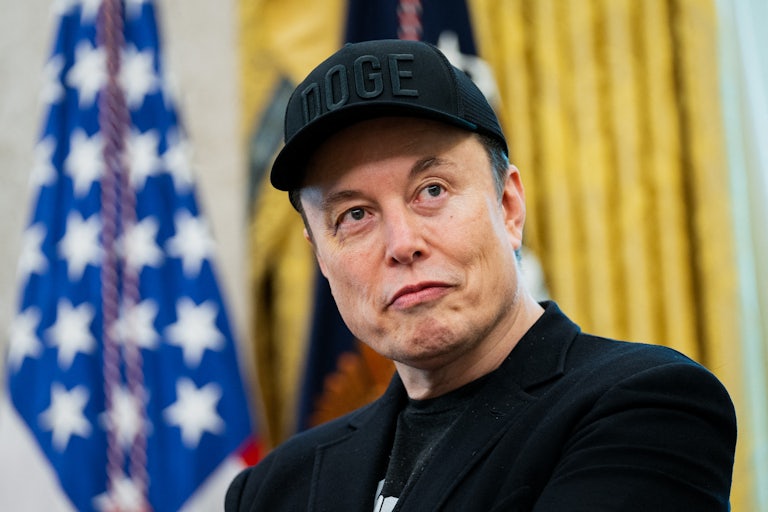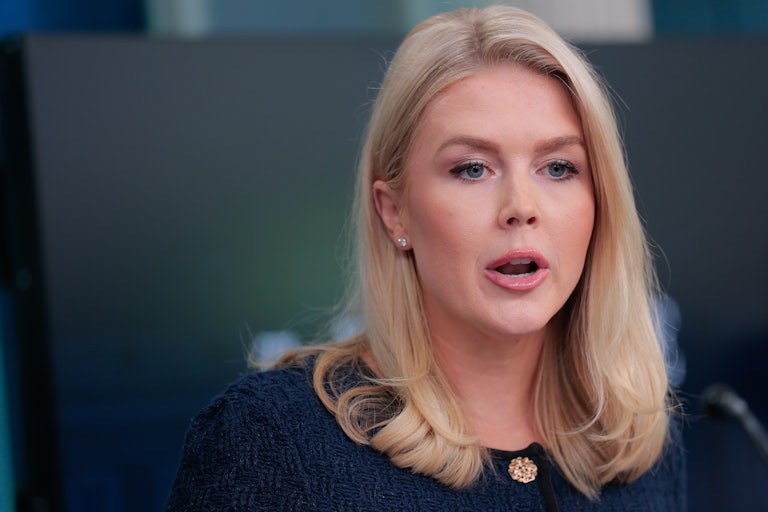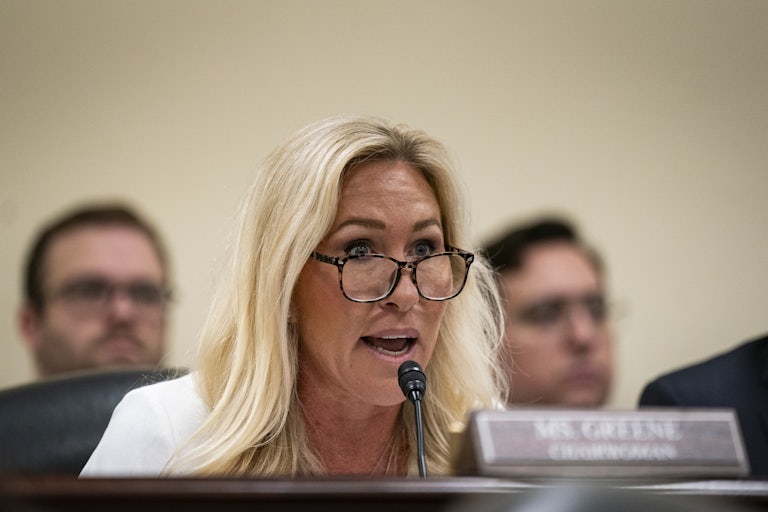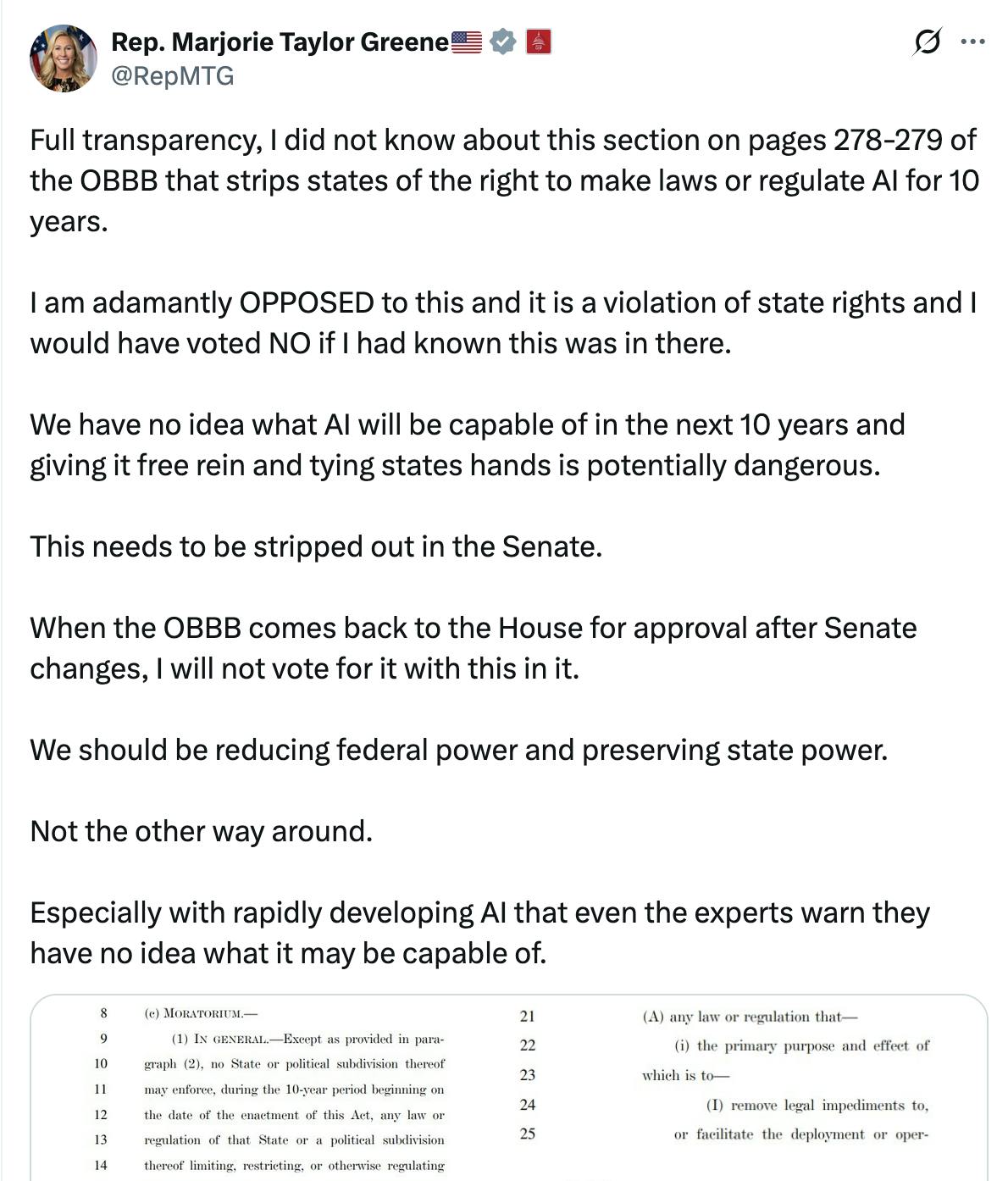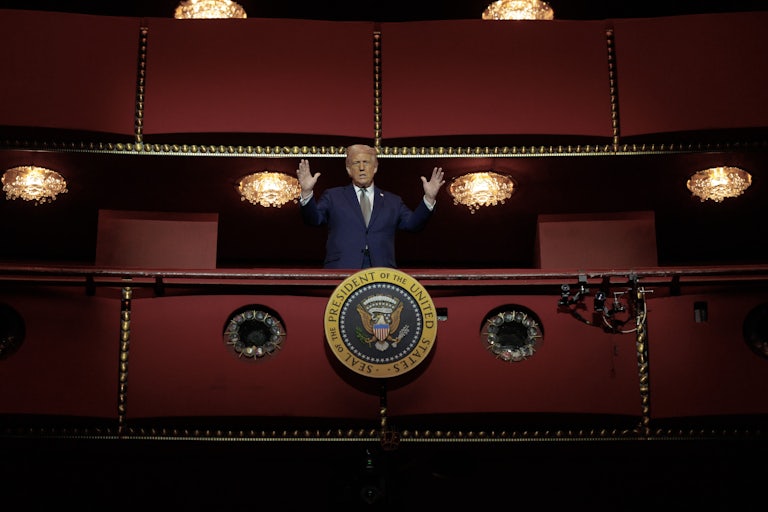Republicans Rush to Suck Up to Elon Musk After New Budget Bill Threat
Republicans who backed the bill are suddenly scrambling to reject it.
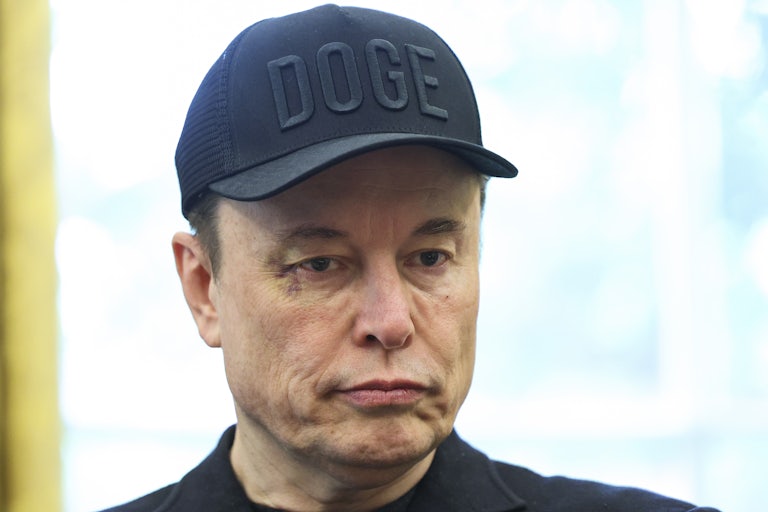
Congressional Republicans are stuck between a rock and a hard place as their former financier, Elon Musk, threatens to use his gargantuan fortune to unseat anyone who supports the president’s “big, beautiful bill.”
Last month, Musk confessed in an interview with CBS that he believed Donald Trump’s spending package—which would add trillions to the national deficit in order to extend his 2017 tax cuts for the wealthy—was actually a bad idea. But the tech billionaire has become more brazen in his read of the bill in the weeks since he’s left the White House.
“I’m sorry, but I just can’t stand it anymore,” Musk wrote Tuesday afternoon on X, the social media platform he owns. “This massive, outrageous, pork-filled Congressional spending bill is a disgusting abomination. Shame on those who voted for it: you know you did wrong. You know it.”
In a separate post, the world’s richest man—who had promised to bankroll Republican primaries mere months ago—made clear what he now planned to do with his cash.
“In November next year, we fire all politicians who betrayed the American people,” wrote Musk.
The bill passed the House by a vote of 215–214, with two Republicans joining all Democrats in voting against it. Republicans plan to offset the expensive tax cut by slashing more than $800 billion from Medicaid. But Musk’s issue with Trump’s plan has little to do with slashing programs aimed at supporting and uplifting the most vulnerable Americans—instead, he condemns the bill because it would effectively undo his work atop the Department of Government Efficiency, which was tasked with paring down government spending.
Senator Rand Paul quote-tweeted Musk, arguing that Congress knows adding another $5 trillion to the national debt would be a “huge mistake.” Senators Ron Johnson, Rick Scott, and Mike Lee have also spoken out against the bill’s price tag. Senators Josh Hawley, Susan Collins, Lisa Murkowski, and Joni Ernst have claimed that slashing Medicaid—the third rail of American politics—could prove to be a fatal political move. Senators John Curtis and Thom Tillis have drawn red pen under the bill’s elimination of green energy tax cuts.
Representative Marjorie Taylor Greene told NewsNation Tuesday that she agreed with Musk “to a certain extent,” hitching herself to the tech billionaire as another conservative who entered government because she was irate with Republicans.
“However, I don’t want to continue this government on a CR that’s funding Democrat and Biden policies and funding, and this bill was important to transition over to exactly what the American people voted for,” Greene said. The Georgia lawmaker further specified that she was wary of some of the inclusions tacked onto the bill, one of which would prevent states from drafting regulation around the artificial intelligence industry for the next decade.
“I think that’s pretty terrifying,” she told NewsNation. “We don’t know what AI is going to be capable of within one year; we don’t know what it will be capable of in five years, let alone 10 years.”
(Greene had admitted earlier Tuesday that she hadn’t actually read the bill before voting in favor of it.)
Representative Scott Perry also hailed Musk as “right to call out House leadership” over the bill. “We expect MASSIVE improvements from the Senate before it gets back to the House,” he wrote on X Tuesday. (Perry voted for the bill.)
Still, Republican leadership has continued to defend the spending bill.
“It’s very disappointing, OK?” House Speaker Mike Johnson told CNN, reacting to Musk’s threat. “I’ve come to consider Elon a good friend. But with all due respect, my friend Elon is terribly wrong about the One Big Beautiful Bill.”
The White House similarly brushed off Musk’s threat.
“The president already knows where Elon Musk stood on this bill,” press secretary Karoline Leavitt said, during a press briefing Tuesday. “It doesn’t change the president’s opinion.”
Musk was Trump’s top financial backer in the 2024 election, spending at least $250 million in the final months of the president’s campaign after Trump was shot in July. Musk had also promised to funnel funds toward other Republicans, declaring in the wake of the November election that his super PACs would “play a significant role in primaries.” In the following months, Musk threatened to use his money to fund primary challengers to Trump’s agenda and go after Democrats, and that he would be preparing “for the midterms and any intermediate elections, as well as looking at elections at the district attorney level.”
